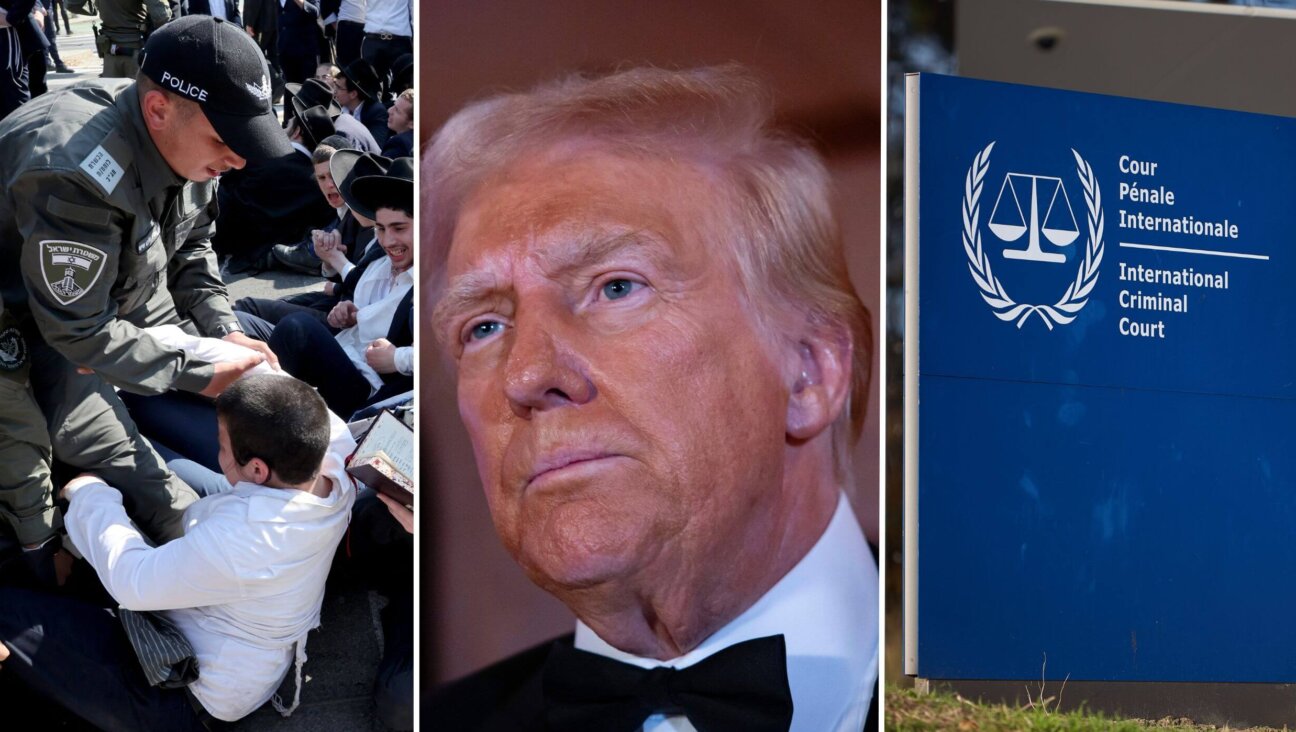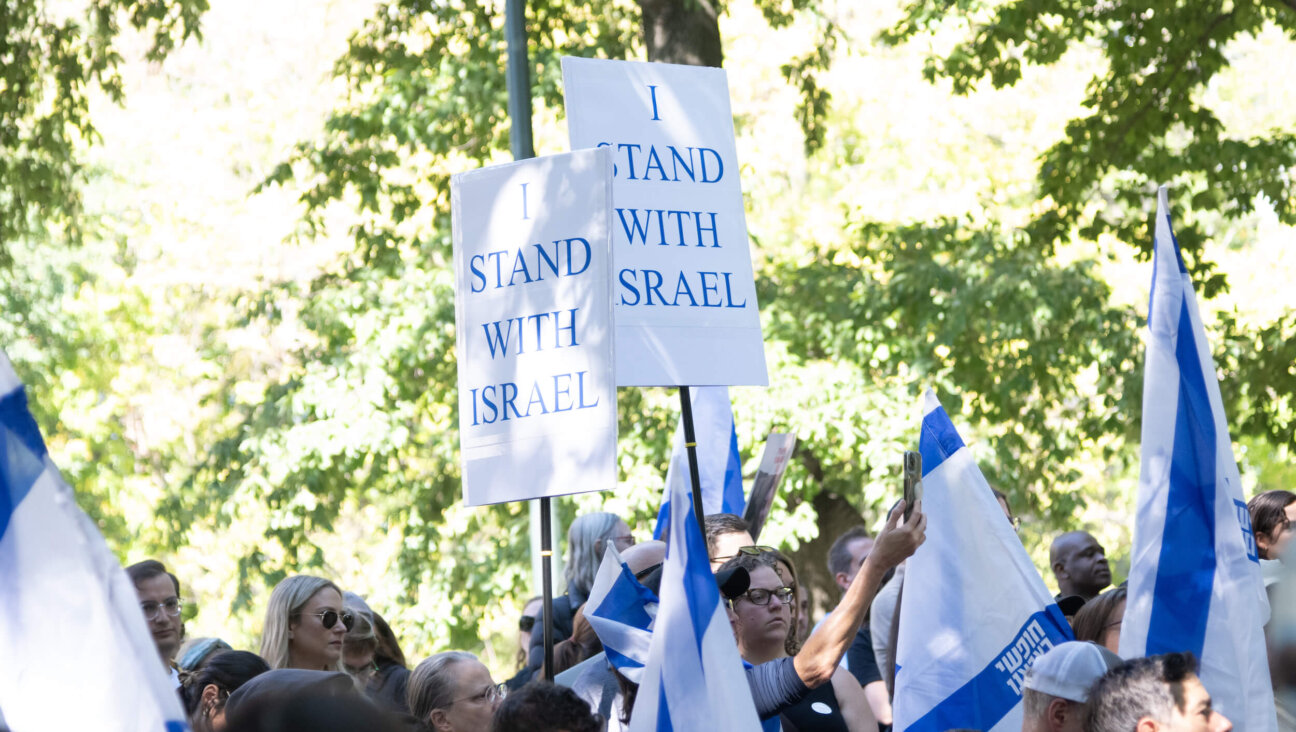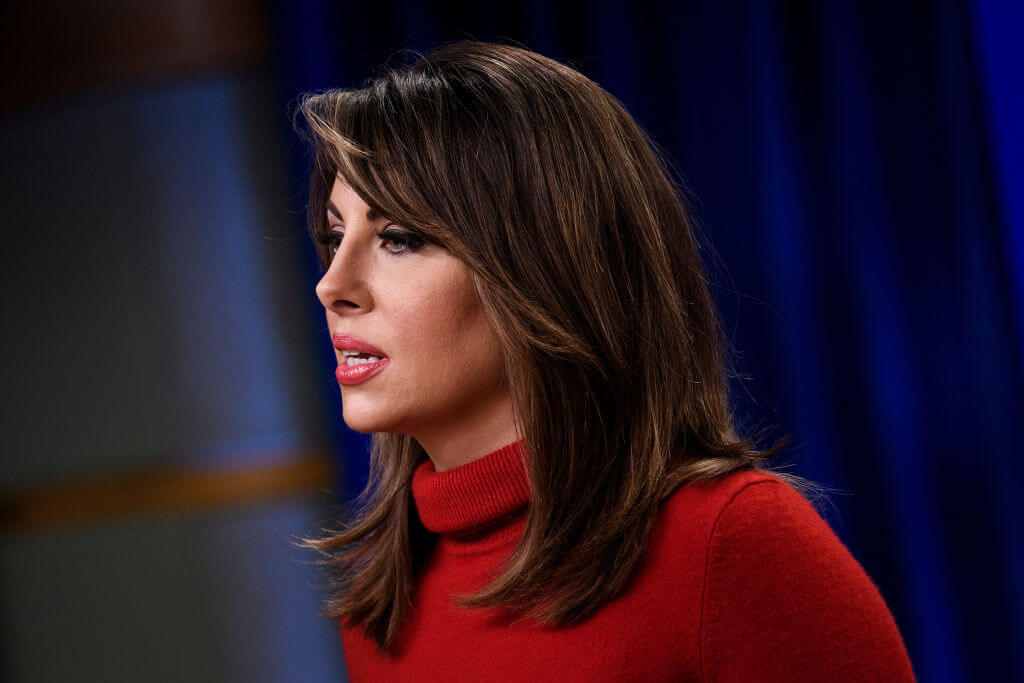Risk-taking in Riyadh
As the Forward went to press this week, reports from a senior Israeli journalist currently in Riyadh — those words themselves bespeak a revolution in Arab-Israeli relations — indicate that Saudi Arabia is preparing to roll out an elaborate new peace proposal. Formulated in the course of secret talks with Israeli and American officials, the new proposal reportedly is meant to fill the gaps that Israel finds most worrisome in the existing Saudi peace plan.
The main Saudi plan, first floated in 2002, promises Israel diplomatic relations and permanent peace with all 22 Arab states in return for withdrawal to the 1967 borders, establishment of a Palestinian state and honoring the Palestinian refugees’ “right of return.” Israel, after initially ignoring the plan, has lately taken to calling it “positive,” but rejects the idea of taking in a flood of Palestinian refugees. Israelis also worry about the apparent all-or-nothing nature of the plan; they want to talk it through, haggle over precise borders and build in reliable guarantees of their own security.
Those are the objections that the reputed new Saudi proposals are meant to answer. According to reporter Orly Azoulay, the Washington correspondent of Yediot Aharonot, who was in Riyadh to cover this week’s Arab League summit, the Saudis are developing on a plan to establish joint Israeli-Arab working groups that would negotiate the various specific elements and timing of the overall peace plan. The working groups would include representatives of the diplomatic Quartet — the United States, United Nations, European Union and Russia — and would operate under the auspices of an international conference to be convened by U.N. Secretary-General Ban Ki-moon.
In a separate report, Yediot stated that the Saudis had reached an agreement in secret talks with Washington and Jerusalem on a refugee deal that would give Palestinians a choice between financial compensation in the countries where they now live or applying for resettlement in the new Palestinian state.
The newspaper reported that the new proposals were to be aired only in the most general terms at this week’s Riyadh summit, where the original Saudi plan was to be revived. The plan won unanimous approval when it was first presented to the Arab League in 2002, but reportedly faces bitter opposition this time from Syria and Libya. Other states are likely to seek a middle ground in order to preserve the semblance of consensus, which could spell trouble for the Saudi efforts to move toward Israel.
Israel faces its own minefields. The government of Prime Minister Ehud Olmert was elected on a promise to seek a settlement, and public opinion favors a deal. It’s not clear, though, that Israelis are prepared for the magnitude of the sacrifice that will be demanded of them. Reaching a deal will require leadership and courage, and both of those commodities are in short supply in Jerusalem right now. Olmert’s political career hangs by a dozen fraying threads, and his main challenges come from the right.
This is a fragile moment, fraught with opportunity and danger. Opponents of any Israeli compromise will dredge up every argument in the book to discredit the Saudis and the rest of the Arab states. They’ll question the viability of the plan and the wisdom of Israeli security experts who favor it. Friends of Israel, seeking only to protect the Jewish state from its enemies, may be tempted to join the fray by picking up the warnings and repeating them loudly, thinking they’re building pressure for a better deal.
But that’s the wrong response. The Saudi plan contains risks for Israel, but those are risks that Israelis are capable of navigating. The greatest danger right now is that a genuine opportunity for peace will be lost. The Saudis are taking an enormous risk in exposing themselves to hardliners as Israel’s advocates. They need encouragement, not abuse.
A message from our Publisher & CEO Rachel Fishman Feddersen

I hope you appreciated this article. Before you go, I’d like to ask you to please support the Forward’s award-winning, nonprofit journalism so that we can be prepared for whatever news 2025 brings.
At a time when other newsrooms are closing or cutting back, the Forward has removed its paywall and invested additional resources to report on the ground from Israel and around the U.S. on the impact of the war, rising antisemitism and polarized discourse.
Readers like you make it all possible. Support our work by becoming a Forward Member and connect with our journalism and your community.
— Rachel Fishman Feddersen, Publisher and CEO























